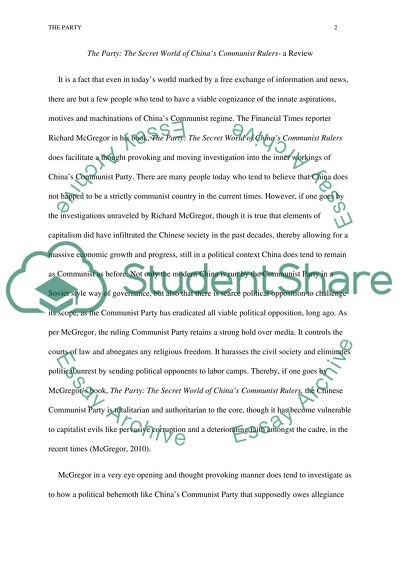Cite this document
(“The Party -The Secret World of Chinas Communist Rulers Book Report/Review”, n.d.)
Retrieved from https://studentshare.org/social-science/1701088-the-party-the-secret-world-of-chinas-communist-rulers
Retrieved from https://studentshare.org/social-science/1701088-the-party-the-secret-world-of-chinas-communist-rulers
(The Party -The Secret World of Chinas Communist Rulers Book Report/Review)
https://studentshare.org/social-science/1701088-the-party-the-secret-world-of-chinas-communist-rulers.
https://studentshare.org/social-science/1701088-the-party-the-secret-world-of-chinas-communist-rulers.
“The Party -The Secret World of Chinas Communist Rulers Book Report/Review”, n.d. https://studentshare.org/social-science/1701088-the-party-the-secret-world-of-chinas-communist-rulers.


